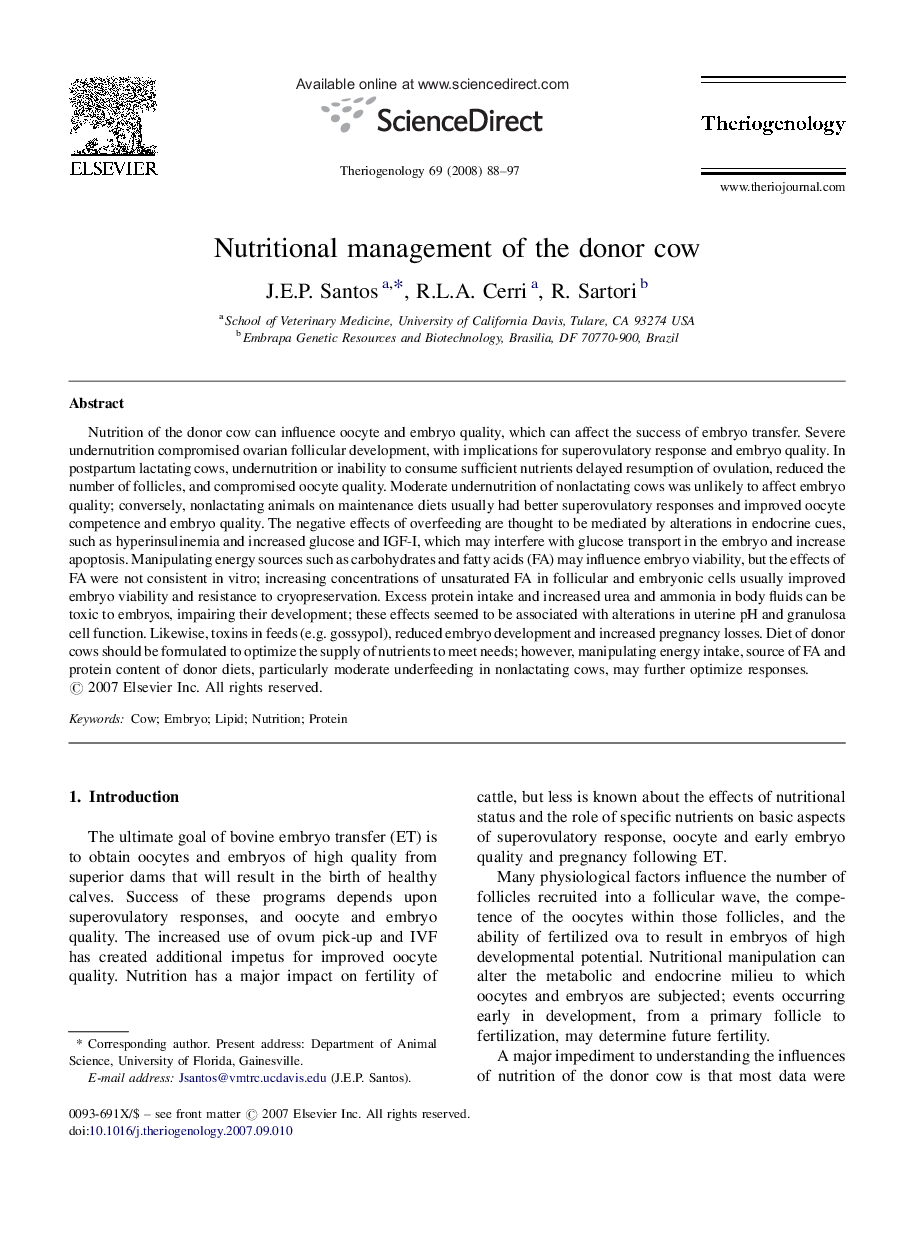| Article ID | Journal | Published Year | Pages | File Type |
|---|---|---|---|---|
| 2096023 | Theriogenology | 2008 | 10 Pages |
Nutrition of the donor cow can influence oocyte and embryo quality, which can affect the success of embryo transfer. Severe undernutrition compromised ovarian follicular development, with implications for superovulatory response and embryo quality. In postpartum lactating cows, undernutrition or inability to consume sufficient nutrients delayed resumption of ovulation, reduced the number of follicles, and compromised oocyte quality. Moderate undernutrition of nonlactating cows was unlikely to affect embryo quality; conversely, nonlactating animals on maintenance diets usually had better superovulatory responses and improved oocyte competence and embryo quality. The negative effects of overfeeding are thought to be mediated by alterations in endocrine cues, such as hyperinsulinemia and increased glucose and IGF-I, which may interfere with glucose transport in the embryo and increase apoptosis. Manipulating energy sources such as carbohydrates and fatty acids (FA) may influence embryo viability, but the effects of FA were not consistent in vitro; increasing concentrations of unsaturated FA in follicular and embryonic cells usually improved embryo viability and resistance to cryopreservation. Excess protein intake and increased urea and ammonia in body fluids can be toxic to embryos, impairing their development; these effects seemed to be associated with alterations in uterine pH and granulosa cell function. Likewise, toxins in feeds (e.g. gossypol), reduced embryo development and increased pregnancy losses. Diet of donor cows should be formulated to optimize the supply of nutrients to meet needs; however, manipulating energy intake, source of FA and protein content of donor diets, particularly moderate underfeeding in nonlactating cows, may further optimize responses.
